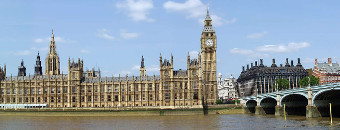Should we expect lack of transparency on the processing and protection of immigration data by the UK Home Office? This is what many personalities of all kinds fear in the UK after the Windrush scandal. The new Data Protection Bill 2017 may lead to a complete opacity on how decisions are made on the issuance of British visas, an opinion that is shared by many lawyers and immigration specialists in the United Kingdom. In fact, these lawyers when they appeal a decision of the Home Office about their customers, must have access to their data. This law could precisely limit access to this information as stipulated in paragraph 4:
"4 (1) The listed GDPR provisions do not apply to personal data processed for any of the following purposes :
(a) the maintenance of effective immigration control, or
(b) the investigation or detection of activities that would undermine the maintenance of effective immigration control, to the extent that the application of those provisions would be likely to prejudice any of the matters mentioned in paragraphs (a) and (b)."
That is the immigration control exemption.
The Information Commissioner’s Office (public regulatory body responsible for compliance with the various data protection laws passed since 1998) denounced the potential drifts of this project:
"The majority of data protection complaints to the Information Commissioner about the Home Office relate to requests for access to personal data to UK Visas and Immigration, mostly by solicitors acting on behalf of those seeking asylum. This exemption could potentially render personal data unobtainable to the data subject and this could be detrimental to individuals who are appealing asylum decisions for example. If the exemption is applied, individuals will not be able to access their personal data to identify any factual inaccuracies and it will mean that the system lacks transparency and is fundamentally unfair."
It is precisely this loophole that immigration lawyers and sollicitors are fighting against, because it could prohibit access to information about their clients (the Subject Access Requests or SARs), or diminish the ability to carry out their work by limiting their access to information witout any records provided by the immigration services, either to appeal a visa refusal or to face legal disputes over the withdrawal, detention and deprivation of British citizenship.
Still following this exemption, the immigration lawyers note in the law that "data controllers, including the Home Office, would not be obliged to respond to subject access requests from people wishing to know what data about them is retained, if the Home Office determines that responding would engage the exemption". This simply means that it will not be possible to check whether errors have been made in the processing of a visa file, that the system lacks transparency and that it is unfair. A potentially high cost for people applying for British visas for fiance or marriage / spouse or partner visa, UK Tier2 work visa or UK Tier1 work visa outside the United Kingdom.
End of April, the Guardian reported comments from Diane Abbott, the Shadow Home Secretary since 2016: the "latest data protection bill shows that the Windrush scandal is not a mistake. The bill exempts immigration matters from data protection. This can be for anyone who is a migrant, or suspected of being one, as in the Windrush cases. They should amend this bill. It is unacceptable that the government should be pressing ahead with legislation that allows agencies to breach data protection rights for anyone who is suspected of being a migrant. Otherwise they will show they have learned nothing, and are determined to maintain the hostile environment at whatever human cost."
According to the Guardian, Joe Egan, president of the Law Society of England and Wales is also very critical of the Data Protection Bill 2017: "The Home Office has a notoriously bad track record for unlawful decision-making, which can have catastrophic consequences for people(...)". And "anyone seeking their own personal data from the Home Office could be denied access without justification and with no avenue to appeal" .
Of course, the British medias and all the civil rights organizations have put the bill under fire. It remains to be seen whether their action will be able to influence the debate or not.
